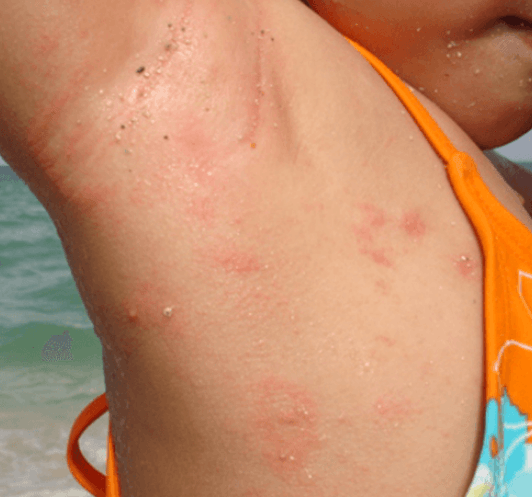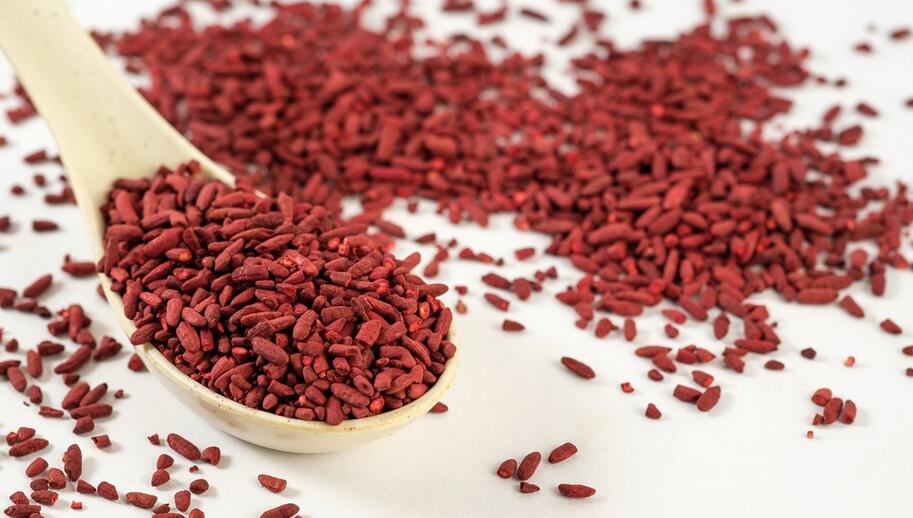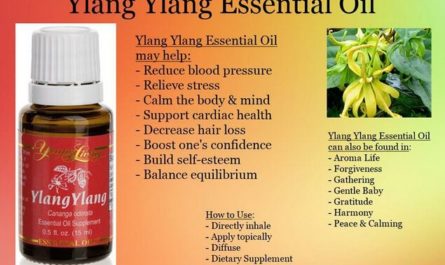Cayenne pepper is a popular spice that is widely used in various cuisines around the world. It has been used for centuries not only as a flavoring agent but also for its medicinal properties. In recent years, cayenne pepper has gained popularity as a natural remedy for various health conditions. In this article, we will explore the 28 amazing health benefits of cayenne pepper and how you can incorporate it into your daily routine.

What is Cayenne Pepper?
Cayenne pepper is a type of chili pepper that is named after the city of Cayenne in French Guiana. It is derived from the Capsicum annuum plant. It is also known as the Guinea spice, bird pepper, or red pepper.
The use of cayenne pepper dates back to ancient civilizations, including the Aztecs and Mayans, who used it for its medicinal properties. It was also used by Native American tribes for its analgesic and anti-inflammatory effects.
In the 15th century, cayenne pepper was introduced to Europe by Christopher Columbus, who brought back chili peppers from his voyages to the Americas. Today, cayenne pepper is widely is used as a natural remedy for various health conditions.
Nutritional Value of Cayenne Pepper
Cayenne pepper is a rich source of vitamins, minerals, and antioxidants, making it a highly nutritious spice. One teaspoon of cayenne pepper contains:
- Calories: 6
- Carbohydrates: 1 gram
- Fat: less than 1 gram
- Protein: less than 1 gram
- Fiber: less than 1 gram
- Vitamin A: 44% of the daily value (DV)
- Vitamin E: 8% of the DV
- Vitamin C: 7% of the DV
- Vitamin K: 5% of the DV
- Potassium: 3% of the DV
Cayenne pepper also contains small amounts of vitamins and minerals, including iron, magnesium, and manganese. It is also a good source of capsaicin, responsible for many of the health benefits associated with cayenne pepper.
28 Amazing Health Benefits of Cayenne Pepper
Cayenne pepper is a powerful spice used for centuries for its medicinal properties. Here are 14 potential health benefits of cayenne pepper:
1. Relieves pain
Cayenne pepper contains capsaicin, which is known to be a natural pain reliever. Capsaicin works by blocking pain signals from the nerves to the brain, which reduces pain perception. This is why cayenne pepper is commonly used as a natural remedy for pain relief.
Studies have shown that capsaicin can effectively reduce pain caused by conditions such as arthritis, neuropathy, and fibromyalgia. It can also help alleviate headaches, toothaches, and muscle pain.

2. Promotes weight loss
Cayenne pepper can help promote weight loss in a few different ways. Firstly, it can boost metabolism. Capsaicin can increase heat production in the body, which can help burn more calories.
Studies have also shown that cayenne pepper can help suppress appetite and reduce calorie intake. This is because capsaicin can increase feelings of fullness and reduce cravings for high-calorie foods, reducing overall calorie intake.
In addition, cayenne pepper may help improve insulin sensitivity, which is important for maintaining healthy blood sugar levels. This can help prevent type 2 diabetes, a condition strongly linked to obesity.
3. Improves digestion
Cayenne pepper can help improve digestion in a few different ways. Firstly, it can stimulate the production of digestive enzymes, which are essential for breaking down food and absorbing nutrients. This can help prevent digestive issues such as bloating, constipation, and indigestion.
In addition, cayenne pepper can help increase blood flow to the digestive system. This increased blood flow can also help relieve inflammation in the gut, benefiting those with inflammatory bowel diseases such as Crohn’s disease or ulcerative colitis.
Research shows that cayenne may also protect the stomach against infections by stimulating specific nerves in the stomach that protect it against injury. If you have an upset stomach or intestinal gas, add a pinch of cayenne pepper to your next meal. It can also ease, soothe, or prevent stomach ulcers.
4. Boosts immune system
Cayenne pepper contains antioxidants like vitamin C and beta-carotene that can help boost your immune system and fight illnesses. Additionally, cayenne pepper can help break down mucus, making it easier to expel germs from your body.
You’ll recover from colds and flu faster if you add cayenne pepper to your diet. If you’re not a fan of spicy food, you can take cayenne pepper in supplement form.

5. Reduces inflammation
Cayenne pepper is as effective as nonsteroidal anti-inflammatory drugs in reducing inflammation. This means it can be used as an alternative to synthetic drugs, which often have adverse side effects.
One study found that cayenne pepper could reduce inflammatory pain caused by injuries or conditions such as sciatica and rheumatoid arthritis.
In addition, cayenne pepper contains antioxidants such as vitamin C, which can help protect cells from damage caused by free radicals. Free radicals can cause oxidative stress and inflammation in the body.
6. Lowers blood pressure
Cayenne pepper has blood pressure-lowering properties. It works by dilating blood vessels, which can increase blood flow and reduce pressure on the walls of the arteries.
The active compound in cayenne pepper, capsaicin, can help lower blood pressure by inhibiting the activity of an enzyme called angiotensin-converting enzyme (ACE). ACE is involved in regulating blood pressure by constricting blood vessels.
In addition, cayenne pepper contains potassium, an important mineral for regulating blood pressure. Potassium helps to counteract the effects of sodium, which can increase blood pressure.
7. Regulates blood sugar
Cayenne pepper may help to regulate blood sugar levels, making it a potential diabetes treatment.
The active compound in cayenne pepper, capsaicin, can improve insulin sensitivity. Insulin is a hormone that helps regulate blood sugar levels by transporting glucose from the bloodstream into cells, which can be used for energy.
In addition, cayenne pepper can help reduce the amount of glucose released into the bloodstream after a meal, which can help prevent blood sugar spikes.
8. Improves circulation
The active compound in cayenne pepper, capsaicin, can increase the production of nitric oxide, a molecule that helps to relax and dilate blood vessels. This can help to increase blood flow and reduce pressure on the walls of the arteries.
Cayenne pepper can also helps to promote healthy blood flow, improving circulation throughout the body. This can help to reduce the risk of conditions such as stroke, heart disease, and peripheral artery disease.

9. Reduces allergy symptoms
Allergies are caused by an overactive immune response to certain allergens, which triggers symptoms such as runny nose, itchy eyes, and sneezing.
Capsaicin can reduce the production of certain immune cells involved in allergic reactions. This can help to alleviate allergy symptoms by reducing the overall immune response to allergens. Additionally, if you suffer from food allergies, cayenne pepper can help detox your system and reduce inflammation, allowing your gut to heal.
10. Prevents blood clots
Blood clots can be dangerous and even life-threatening. They can limit blood flow throughout your circulatory system and make it harder for your heart to pump.
Limited blood flow throughout the body may also increase your risk of stroke. However, cayenne pepper can help prevent blood clots by encouraging fibrinolytic activity.
Capsaicin, the active compound in cayenne pepper, can clear away lipid deposits that narrow your arteries and dilate them. In addition, by consuming cayenne pepper, you can support your heart health and reduce your risk of blood clots.
11. Fights infection
Cayenne pepper can possess antimicrobial properties, making it effective in fighting off various types of infections. The capsaicin in cayenne pepper can inhibit the growth and spread of certain bacteria and fungi, including E. coli and Candida.
In addition, cayenne pepper can stimulate the production of white blood cells. This immune-boosting effect may also help to reduce the severity and duration of infections.
One study even found that cayenne pepper effectively prevented the growth of the bacteria responsible for strep throat and other symptoms.
12. Alleviates migraines
Cayenne pepper may also help alleviate migraines, a headache that can cause intense pain and other symptoms. The capsaicin in cayenne pepper can help block the pain signals transmitted to the brain.
In addition, cayenne pepper can also help to dilate the blood vessels in the brain. By improving blood flow to the brain, cayenne pepper may help reduce the frequency and severity of migraines over time.
13. Improves skin health
Cayenne pepper can also be used as part of your beauty regimen. Its high vitamin E content helps restore collagen levels, which is a protein needed to give skin its elasticity.
Vitamins C and E in cayenne pepper are antioxidants and have been shown to reverse skin damage caused by excessive UV rays. Adding cayenne pepper to your diet and applying a topical cream to problem areas can help reduce wrinkles and sunspots.
14. May have anticancer properties
According to recent studies, capsaicin, the active ingredient in cayenne pepper, may possess anti-cancer properties. One study has shown that capsaicin can inhibit the growth of cancerous cells and prevent new ones from developing.
Due to the abundance of capsaicin present in cayenne, it can halt the formation of lung tumors resulting from tobacco usage. Other studies have reported similar findings about liver tumors and prostate cancer.
15. Boost Your Metabolism
Cayenne pepper has been shown to have a positive effect on metabolism. The active ingredient in cayenne pepper, capsaicin, has thermogenic properties that can help increase metabolic rate and promote fat burning.
In a study published in the International Journal of Obesity, researchers found that capsaicin intake led to an increase in energy expenditure and fat oxidation in both lean and overweight individuals.
Another study published in the Journal of the International Society of Sports Nutrition found that cayenne pepper supplementation increased fat burning during exercise.
16. Improve Psoriasis
Psoriasis is a chronic skin ailment characterized by itchy patches of red, inflamed skin. It occurs due to the rapid replication of skin cells, leading to an accumulation of dead skin cells on the skin’s surface. As a result, scaly patches of red and swollen skin develop.
According to a study, individuals suffering from psoriasis who used cayenne pepper cream for six weeks experienced a significant reduction in redness and scaling associated with their condition. Another research revealed that using capsaicin cream four times a day for six weeks led to a substantial decrease in the thickness, redness, itching, and scaling of psoriasis patches.
17. Reduces Migraines
If you suffer from migraines, you know how debilitating the pain can be. Cayenne pepper may help alleviate your symptoms. When you consume cayenne pepper, it can cause you to feel pain in different parts of your body, which can divert your attention away from your migraine.
Some research suggests that simply using the power of your brain can help reduce pain levels. By perceiving your pain as less severe than it is, you may be able to trick your brain into feeling less pain.
Cayenne pepper can also minimize substance P, the nerve pain chemical found in the area where the pain is detected. This can further help to reduce pain levels and provide relief from migraines.
18. Removes Toxins
Cayenne pepper is a common ingredient in detox beverages and for a good reason. It contains antioxidant properties that can clear toxins out of the body. Removing toxins can help improve your skin health and the efficiency of your digestive tract, blood flow, and metabolism.
To create a tasty and healthy detox drink, combine two tablespoons of freshly squeezed lemon juice, a pinch of cayenne pepper, and two tablespoons of maple syrup in a glass of water. Some people consume as many as eight glasses daily to clear out their system and reboot their metabolism.
19. Reducing Hunger
Are you struggling with controlling your appetite? Cayenne pepper might be able to help. Several studies have found that cayenne peppers can help reduce hunger and make you feel fuller for longer periods. The capsaicin in cayenne minimizes the release of ghrelin, the hunger hormone that prompts you to eat.
One study found that cayenne pepper helped decrease appetite in Japanese women and total energy intake in Caucasian men. Another study found that people who took capsaicin supplements ate 10 percent less on average than a control group, while those who drank a beverage that contained capsaicin reduced their energy intake by 16 percent.
20. Stimulate Orgasms with Cayenne
Cayenne pepper is not just good for your health; it can also improve your sex life. Due to its ability to increase circulation, cayenne pepper can help improve blood flow to the penis in men, which can help combat erectile dysfunction.
Women can also benefit from increased blood flow to the genital area, which can help achieve an orgasm. While it might be tempting to apply cayenne topically, it’s best to add it to your diet or take it as a supplement.
21. Healing Ulcers
Cayenne pepper is an anti-irritant that helps ease the pain of ulcers by inhibiting acid secretion and stimulating mucus. This can help prevent and heal ulcers. One study found that capsaicin helps stimulate neurons in the stomach, which signals protection against agents that cause injury.
If you want to enhance your protection against ulcers further, ease up on the NSAIDs. Ironically, you can use cayenne pepper to help relieve your pain instead. Try adding some to your favorite stir-fry dish for a tasty kick.
22. Supporting Eye Health
Cayenne pepper contains a lot of vitamin C, which is important for maintaining healthy eyes. Vitamin A is also needed to keep your brain and skin healthy. It works as an antioxidant in the body to reduce toxins and inflammation that cause chronic diseases, such as macular degeneration.
Vitamin A can also help foster cell growth. So not only does it help reduce damage to existing cells, but it also encourages new, healthy cells to form. Two teaspoons of cayenne pepper a day provide you with your full recommended intake of vitamin A for the day.
23. Anti-fungal Properties
Cayenne pepper is not just a spice that adds flavor to your food. Research has shown that it has anti-fungal properties, which makes it effective against a wide range of fungal strains.
Unlike many medications, cayenne pepper is non-toxic and safe for animals, making it an excellent choice for treating fungal infections.
Common fungal infections include yeast infections, jock itch, athlete’s foot, and ringworm. To get the most out of the anti-fungal properties of cayenne pepper, you can add it to your food or apply a topical cream.
24. Antibacterial Properties
In addition to its anti-fungal properties, cayenne pepper also has antibacterial properties. This means that it can be used as a natural preservative to keep your food fresh and healthy.
Research shows that cayenne pepper can be used in place of harmful synthetic preservatives to keep your food free from bacteria that cause digestive problems, colds, and skin infections.
Adding cayenne pepper to meat-based dishes can help store leftovers in the refrigerator for up to a week without fear of spoilage.
25. Reduces Toothache Pain
Toothache pain can be unbearable, and cayenne pepper can help reduce the pain associated with toothaches. Capsaicin, the active compound in cayenne pepper, can reduce substance P in nerve fibers.
Applying an over-the-counter capsaicin cream or mixing the inside of a capsaicin capsule with coconut oil and applying it directly to the affected tooth can help you get through the painful time until you can see a dentist.
26. Promotes Longevity
Research suggests that consuming cayenne pepper can extend your life. A study using data from nearly half a million subjects found that people who ate foods containing cayenne pepper had a 14 percent chance of living a longer life than people who did not eat the spice.
Further research shows that this might be due to Cayenne’s ability to reduce the number of deaths from heart problems, cancer, and respiratory problems. Eating cayenne pepper a few days out of the week is better than eating it only once a week.
27. Reduce Anxiety
If you’re feeling anxious or depressed, cayenne pepper might be able to help. Research has shown that cayenne pepper can stimulate the production of endorphins in your brain, which can block pain signals and make you feel good. This can help relieve anxiety and depression symptoms, making you feel calmer and more relaxed.
28. Improve the Taste of Healthy Foods
Eating healthy can be challenging, but cayenne pepper can help make it more enjoyable. Adding a pinch of cayenne pepper to your vegetables or lean protein can improve the taste, making you more likely to eat these nutritious foods. So, next time you struggle to enjoy a healthy meal, try adding some cayenne pepper to spice things up.

Precautions and Side Effects
While cayenne pepper is generally safe for most people, it may cause side effects in some individuals. Common side effects include stomach irritation, sweating, and flushing. It may also interact with certain medications, such as blood thinners and high-blood pressure medications.
Consult with your healthcare provider before taking cayenne pepper supplements, especially if you have any underlying medical conditions or are taking medications.
Conclusion
Cayenne pepper is a versatile spice that not only adds flavor to food but also has numerous health benefits. From boosting metabolism to reducing inflammation, cayenne pepper can improve your health. Incorporating cayenne pepper into your daily routine can be a simple and effective way to improve your overall well-being.






